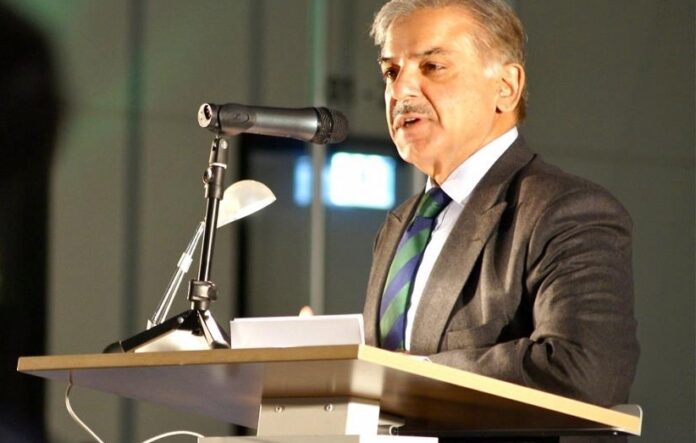Sharif warns India against weaponising Indus Waters Treaty, threatening millions’ survival
Pakistani Prime Minister Shehbaz Sharif issued a fierce warning to India on Friday, condemning New Delhi’s decision to suspend the Indus Waters Treaty (IWT) as a dangerous attempt to weaponise water. Speaking at a high-profile international conference on glacier preservation in Dushanbe, Tajikistan, Sharif declared that Pakistan would never allow India to cross what he called a “red line” by jeopardising millions of lives for political gain.
The Indus Waters Treaty, signed in 1960, governs the sharing of water from the six rivers of the Indus Basin between India and Pakistan. For decades, it has been a cornerstone of cooperation amidst the often tense bilateral relationship. However, after the terrorist attack in Pahalgam on April 22, India took the drastic step of putting the treaty in abeyance along with other punitive measures against Pakistan. Sharif described this unilateral action as “illegal” and “deeply regrettable,” underscoring the severe consequences of such a move.
Addressing over 2,500 delegates from 80 United Nations member states and 70 international organisations, including UNESCO and the World Meteorological Organisation, Sharif stressed the humanitarian stakes involved. He emphasised that millions of lives depend on the waters governed by the treaty and that no political agenda should be allowed to hold them hostage.
“Millions of lives must not be held hostage to narrow political gains, and Pakistan will not allow this,” Sharif said. His remarks echoed deep fears in Pakistan, where water scarcity already poses a significant threat to agriculture, health, and overall stability.
Embed from Getty ImagesThe conference, hosted by the Tajik government in partnership with major international bodies like the Asian Development Bank, focused on the urgent need to preserve glaciers and manage water resources sustainably—issues crucial for South Asia’s future. Sharif’s intervention brought a sharply political dimension to the gathering, linking the global climate and water crisis to regional geopolitics.
India’s suspension of the IWT threatens to disrupt the delicate water-sharing balance established over six decades. Pakistan fears this could escalate water shortages in an already water-stressed country, potentially leading to a humanitarian disaster. The Indus Basin sustains millions of Pakistanis, making the treaty’s continuation vital for their survival.
Sharif’s strong language signals Pakistan’s resolve to protect its water rights at all costs. By calling India’s actions “weaponisation of water,” he framed the issue as not merely a bilateral dispute but a potential use of natural resources as a strategic tool of coercion.
This move by India has sparked concern internationally, as water conflicts increasingly threaten global peace. The Indus Basin dispute is one of the most critical water-sharing issues in South Asia, involving both security and human rights dimensions.
Pakistan’s PM highlighted the treaty’s importance as a model for cooperation despite political hostility. The decision to suspend it, he warned, threatens not only bilateral peace but also regional stability and the well-being of millions.
As the conference continues, the world watches closely. Water scarcity and climate change are mounting threats, and the politicisation of water resources risks pushing millions into crisis. Shehbaz Sharif’s warning at Dushanbe is a stark reminder that water wars, once theoretical, are dangerously close to reality.
